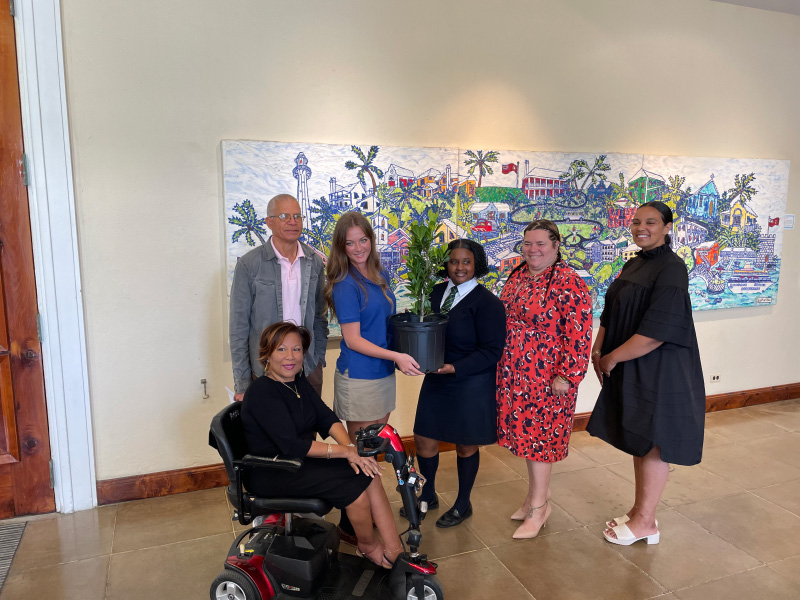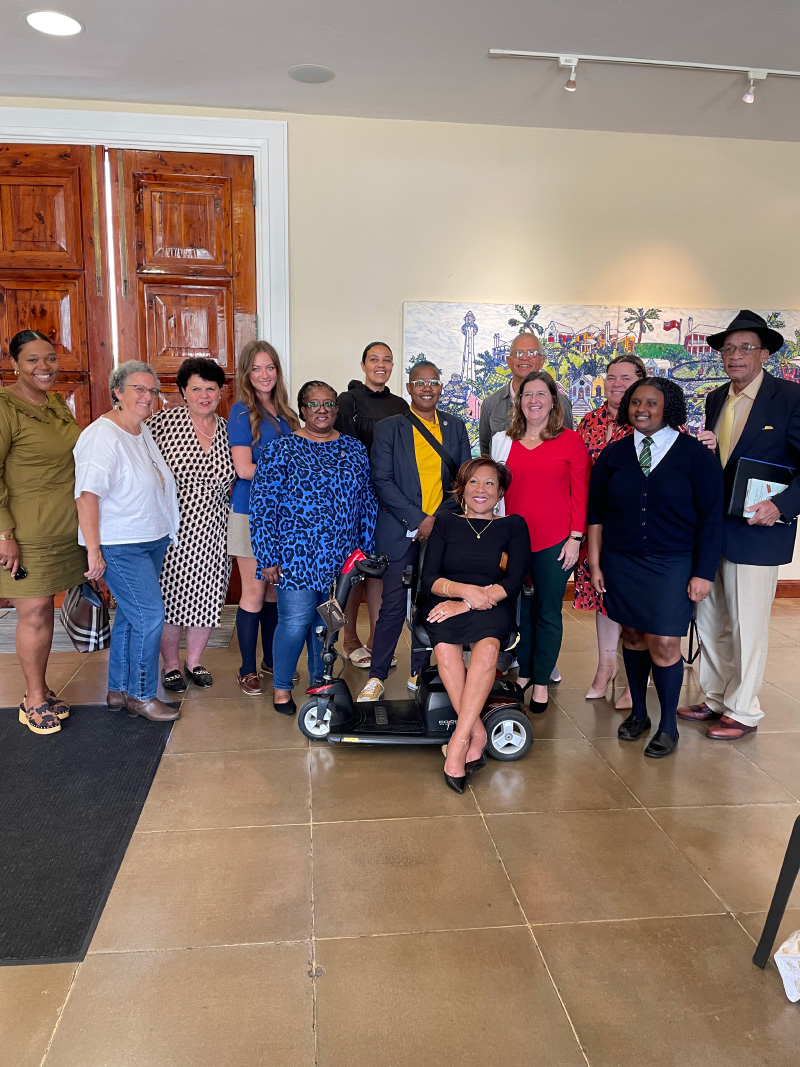Women’s Voting Rights Anniversary Marked
April 21 marked the anniversary of the successful passage of the Women’s Voting Rights Bill in Bermuda, which took place in 1944.
A spokesperson said, “On April 21, 1944, Bermuda witnessed the successful passage of the Women’s Voting Rights Bill in Parliament.
“This was accomplished mostly due to two decades of struggle led by the Bermuda Woman’s Suffrage Society [BWSS], founded in 1923 by a small group. Key amongst them was Gladys Missick Morrell, who had become inspired by the British Suffrage movement during her university years in London.
“That said, there was key assistants. This chapter of Bermuda history demonstrates the role of intersectionality – the synergy of seemingly disparate issues of principle – which helped leverage this step forward. Upon reflection, it is evident that the suffrage movement helped prepare the soil for the comprehensive ground-breaking efforts which transformed our island through the 40s to the 70s. It arguably ushered in a renaissance, opening Bermuda.
“Gladys was privileged, her father served as a Parliamentarian in Sandys at a time that the regime controlling Bermuda limited the vote to males who owned property of a certain value. ‘Bermuda Biographies’ reports that, at the time, less than 7% of the adult population – only men – could vote.
“The suffrage movement offered a lesson in patience. After agitating for a number of years, in 1930 they launched a campaign to submit a petition to Whitehall in London. Although that received support from the UK, no changes occurred.
“Another campaign – ‘No Taxation Without Representation’ – saw campaigners refusing to pay their land tax. Gladys demonstrated her mettle by staring down the threat of imprisonment. However, still no ground was given.
“While privileged by race and class, Gladys demonstrated that she was prepared to act outside of the box in order to promote progress.
“This was also a characteristic of Dr Eustace Cann – the son of a doctor who had been a Parliamentarian. Dr Cann, notwithstanding being hampered by the barriers of race, became a local transformational figure; as described by Ira Phillip in the book The History of the Bermuda Industrial Union. Phillip asserts that Eustace Cann was “a seminal force in preparing the minds of workers and the ground that led to the formation of the Dockyard Workmen’s Association“ and the evolution of the labour movement.
“Both Gladys and Eustace were prepared to act outside of the box – the norms of those times – for the bigger picture. She also helped establish district nursing that promoted children’s health in the face of an antiquated system. He championed Sandys Secondary School – one of only two high schools for the hundreds of black children impacted by segregation.
“Eustace Cann clearly demonstrated his out of the box approach when he reflected on his vote as a Parliamentarian in April 1944. Up to that time he, like his fellow black Parliamentarians, had not supported the suffragette movement because it had the potential of undermining the ultimate goal of universal suffrage – opening the vote to all adults. However, given the fact that this strategy had not moved the needle in two decades, Cann determined to shift and vote for at least one step forward.
“In hindsight, the vote of Dr Cann linked him with his Somerset colleague Gladys Morrell. Their collaborative energy led to the breakthrough on April 21, but based on Ira Phillip’s record, it’s arguable that within a matter of two months the good doctor was assisting with the delivery of a new beginning in Bermuda – a 20th century renaissance.
“Today two students will present a young sapling Olivewood in the names of both Gladys Morrell and Dr Eustace Cann as a symbol of peace and community, to the Speaker of the House, Dennis Lister JP MP.”
Read More About
Category: All



